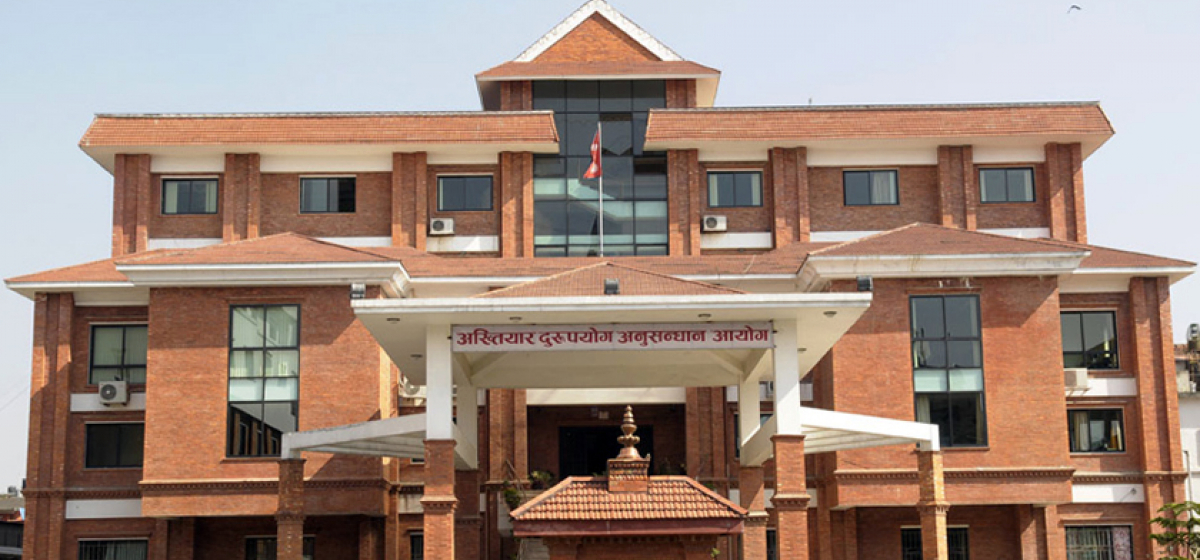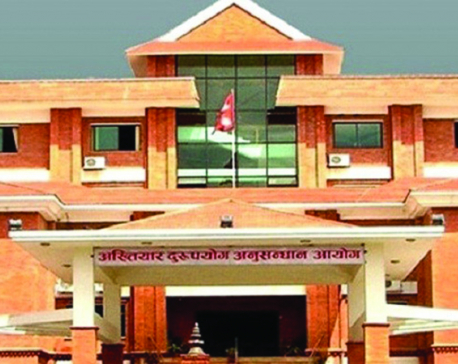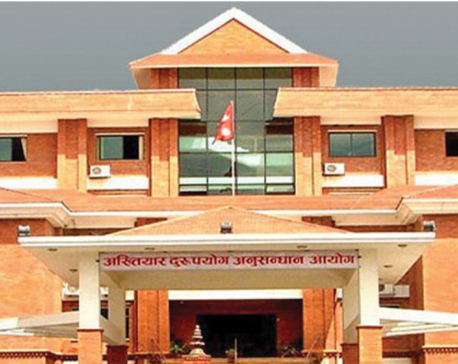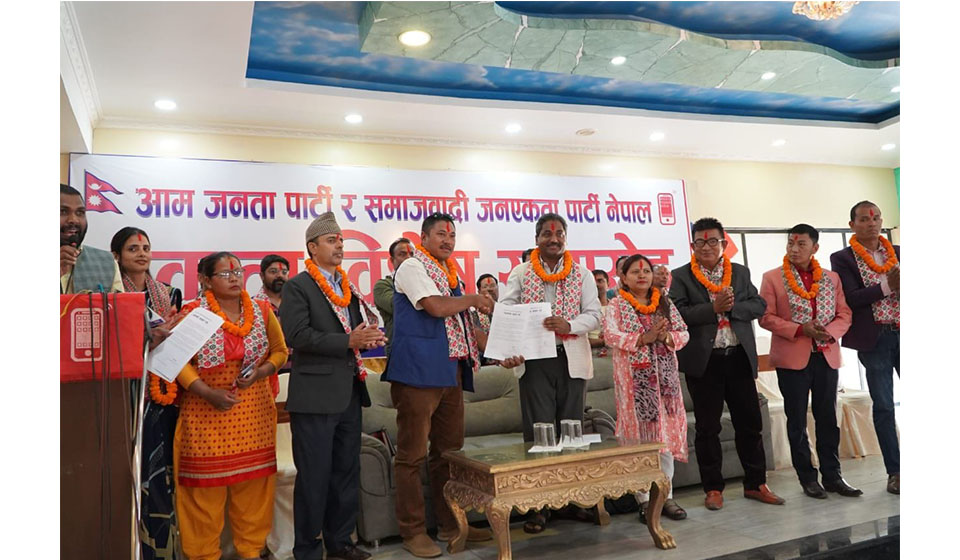
OR
National Payment Gateway Procurement Scam
CIAA files cases against high-ranking govt officials on corruption charge
Published On: October 3, 2023 08:00 AM NPT By: Republica | @RepublicaNepal

KATHMANDU, Oct 3: The Commission for the Investigation of Abuse of Authority (CIAA) has filed cases against nine individuals including high-profile government officials accused of being involved in misappropriation of Rs 232.70 million while procuring the software related to the National Payment Gateway (NPG).
NPG is a common platform that integrates various systems of online payments, including private mobile wallets and card payment services along with financial transactions of the government. It incorporates the entire payments ecosystem that helps reduce cost and reduce risk factors that could arise in the existing online payment systems.
Citing the delay in the enforcement of the system which the government bodies procured five years ago, the CIAA grilled the government officials who were involved in the procurement process. On July 3, 2018, the government had signed an agreement to purchase the platform for USD 88,000. Although the related software was ready for use a year ago, it has failed to come online mainly due to lack of coordination between the government agencies and the central bank.
The CIAA on Monday filed the cases at the special court. The anti-graft body grilled individuals that include Madhu Kumar Marasini, secretary of the Ministry of Industry, Commerce and Supplies. Marasini has been charged for his involvement during his tenure as the Secretary of the Ministry of Finance (MoF).
Similarly, the Former Managing Director of Nepal Telecom Sunil Paudel and Former Secretary of the Ministry of Science and Technology Sanjay Sharma have also been dragged under the corruption case.
The officials of National Information Technology Center (NITC) were among the others who have been recommended by the CIAA for action. These include NITC’s assistant director Ramesh Prasad Pokharel, former executive director Pranita Upadhyaya, deputy director Safal Shrestha, account officers Nim Bahadur Woli and Ram Bahadur Budha and computer engineer Ram Sharan Gayak.
An investigation carried out by the CIAA shows that these government officials were found making an alliance to embezzle the aforementioned amount from the state coffers.
Marasini, who had worked as a chief of the Budget and Program Division under the MoF, has been alleged of allocating annual budget to procure related software even when the heading was not involved in the budget document forwarded by the NITC. Marasini has also been blamed for breaching the fundamental rules of LMBIS while submitting the headings in the budget document. Marasini was found allocating the budget crossing the ceiling of Rs 250 million and not maintaining required documents before publishing it in the Nepal Gazette.
Besides, the government officials have also been charged for not maintaining prerequisites before procuring the related software. Although the NPG is purely a technical matter, there was no involvement of banking experts and the issue was not even consulted with stakeholders while procuring the platform. The accused had released the payment for the agreement, the deadline of which had already expired, according to the CIAA.
The government enacted the Payment and Settlement Act in 2019, according to which all the payment service providers need to take approval from the Nepal Rastra Bank (NRB). “However, the government bodies did not take any approval from the NRB for the National Payment Gateway,” said an official of the NRB, under condition of anonymity.
The first phase of national payment switch came into operation in November 2021 by establishing a retail payment switch with Nepal Clearing House. However, the full-fledged implementation of the system is yet to come online till date.
In the absence of NPG, the banks and financial institutions (BFIs) have been relying on international switches for the payment through debit and credit cards as well as for the use of ATMs. They have been paying hefty prices for digital transactions through international payment gateway like Visa and MasterCard due to lack of Nepal’s own payment gateway. The switch is crucial for connecting all the institutions involved in electronic transactions.
The NPG enables switching the server to the domestic domain. It is expected to help maintain national sovereignty, apart from minimizing the risk and operational costs.
The delay in enforcement of the NPG has also been blamed to an alleged involvement of the individual payment settlement companies, which have been suspected to be pressurizing the authority to deliberately postpone the date, just to fulfill their vested interests.
You May Like This

CIAA issues 22-point directive to govt for effective project management
KATHMANDU, Nov 3: The Commission for the Investigation of Abuse of Authority (CIAA) has issued a 22-point directive to the... Read More...

CIAA starts probe after suspicion of corruption in Kalanki-Balkhu road project
KATHMANDU, April 16: The Commission for the Investigation of Abuse of Authority (CIAA) has initiated an investigation into suspected irregularities... Read More...

Stakeholders smell rat in Sikta probes delay
NEPALGUNJ, Sept 28: Both the Ministry of Irrigation and the Commission for the Investigation of Abuse of Authority (CIAA) have formed... Read More...




Just In
- Sunkoshi-Marin Diversion Project’s tunnel construction nears completion, breakthrough scheduled for May 8
- Govt tightens security arrangement for Third Investment Summit 2024
- Pesticide residue found in vegetables in Nepalgunj
- Aam Janata Party and Samajwadi Jana Ekata Party merge
- 1,600 participants confirmed for Nepal Investment Summit
- Ilam-2 by-elections held peacefully, vote count likely to start tonight
- NEA schedules five-day power cut across Kathmandu Valley for underground cable installation
- Hundreds of passengers including foreign tourists in distress as poor visibility halts flights to and from PRIA







-1200x560-wm_20240427144118.jpg)





Leave A Comment